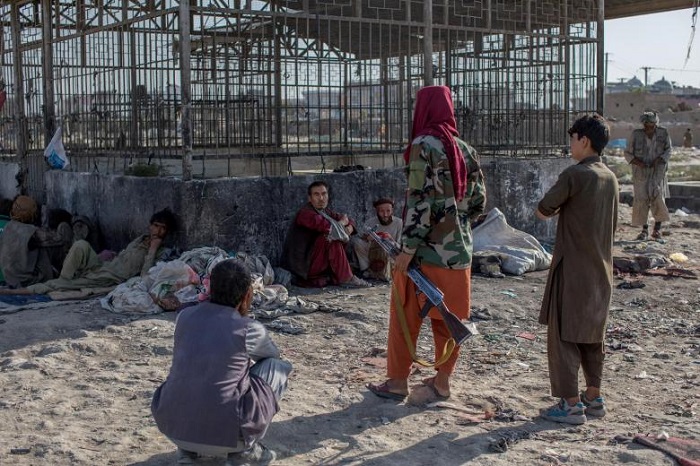Drug cultivation is one of Afghanistan's most important sources of income. Die WELT visited the fields and talked to the people who live from growing opium and marijuana. The Taliban banned the cultivation of these plants once before. But this time is different.
This article was originally published by Die Welt on October 13, 2021. The original can be found here. Translation by SyriacPress
By Alfred Hackensberger correspondent for WELT
In the full afternoon heat, they huddle together in the shade of the last remaining grave on the grounds of the dilapidated cemetery of Mazar-i-Sharif. Some smoke crystal meth from small glass pipes, others heroin on aluminum foil, or opium. The relaxed mood of the ten or so men are changes abruptly when an armed member of the Taliban appears.
He suddenly hits one of the drug users with the butt of his rifle and kicks him when he’s down. “The Taliban beat us all the time,” says the sturdy and tall Noorallah after the Taliban fighter with the conspicuous red scarf has left. “Look here,” says the 37-year-old construction worker. He points to his swollen hand and a thick left cheek. He rolls up one sleeve of his shirt. The arm is covered with red-blue stains. “More than a thousand people used to come here to the compound every day,” Noorallah says. “Since the Taliban have been in power, that’s over. Everyone is afraid of being beaten up and arrested.”
The radical Islamists have nothing to do with modern drug therapies. Instead, they follow anachronistic beliefs that consider prohibitions and especially draconian punishments as a panacea. The immorality and the evil that discourages a God-fearing life must be combated. Alcohol and all other drugs are considered “haram” (forbidden)


Kommentare